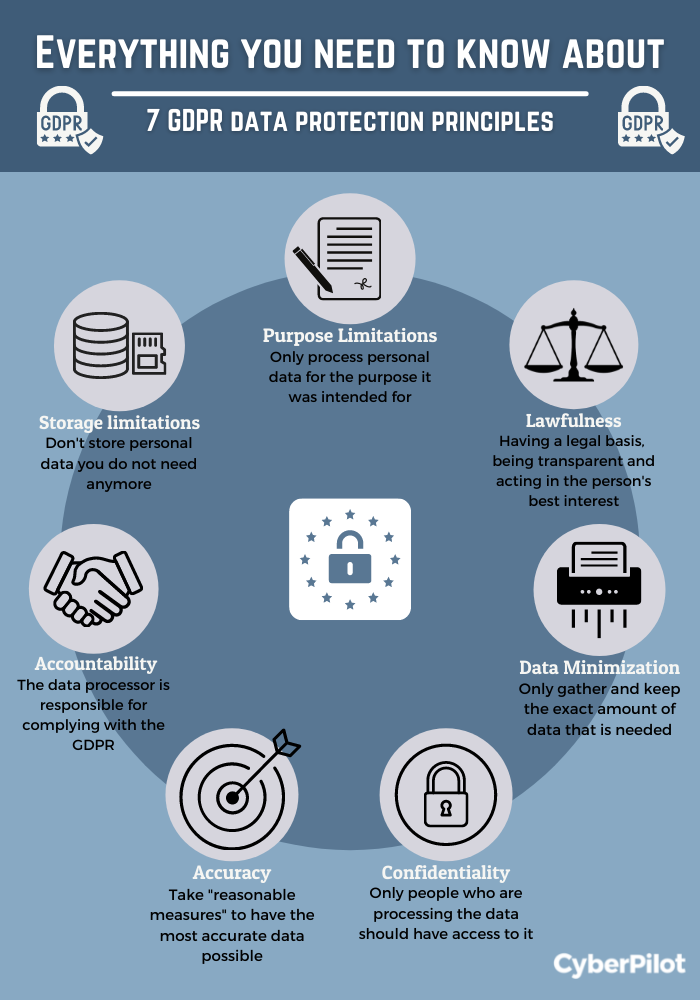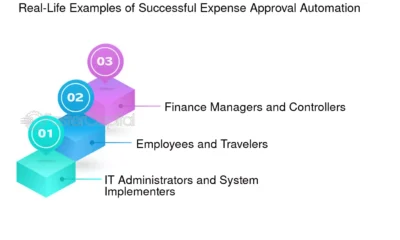Cybersecurity & Privacy
7 Key Traits Of A Data Protection Officer: Essential Qualities Revealed

Data protection is crucial in today’s digital age. Companies must safeguard sensitive information to maintain trust.
A Data Protection Officer (DPO) plays a key role in this effort. They ensure that organizations comply with data protection laws and handle personal data responsibly. The role of a DPO is not just about legal compliance; it also involves understanding the data landscape and addressing security challenges.
They are vital for maintaining privacy and data integrity. But what makes a good DPO? Certain traits set apart effective DPOs from the rest. These traits help them navigate the complex world of data protection and ensure that an organization’s data is secure. Let’s explore the seven key traits that define a successful Data Protection Officer.
:max_bytes(150000):strip_icc()/general-data-protection-regulation-gdpr.asp-final-1b12e02aa4d149b9af4fcd8aec409a89.png)
Credit: www.investopedia.com
Role Of A Data Protection Officer
The role of a Data Protection Officer (DPO) is crucial in today’s digital age. With data breaches becoming more common, organizations need someone to ensure data safety. A DPO helps in protecting sensitive information and complying with data protection laws. They act as a bridge between the organization and regulatory authorities. Their presence ensures that data handling processes are secure and transparent.
Importance In Modern Organizations
Data is the backbone of modern organizations. It drives decisions, strategies, and operations. Data breaches can lead to significant financial and reputational damage. A DPO helps prevent such breaches. They ensure that the organization follows data protection regulations. This compliance builds trust among customers and partners. It also reduces the risk of hefty fines.
Key Responsibilities
A DPO has several critical responsibilities. First, they monitor the organization’s data protection strategy. They ensure that data is collected, stored, and processed securely. They also conduct regular audits to identify potential vulnerabilities. Another responsibility is to educate employees about data protection practices. They provide training sessions and resources to keep everyone informed.
Furthermore, a DPO acts as a point of contact with regulatory authorities. They handle data breach notifications and manage any investigations. They also stay updated with changes in data protection laws. This ensures that the organization remains compliant. Lastly, a DPO advises on data protection impact assessments. They evaluate new projects and initiatives to ensure data privacy is maintained.
Legal Expertise
A Data Protection Officer (DPO) must possess strong legal expertise. This expertise ensures the organization complies with data protection laws and regulations. Legal knowledge is crucial for interpreting and applying these laws effectively. Below are key aspects of a DPO’s legal expertise.
Knowledge Of Data Protection Laws
A DPO should have a thorough understanding of data protection laws. These laws include GDPR, CCPA, and other regional regulations. This knowledge helps in identifying potential risks and avoiding legal pitfalls. A DPO should stay updated on any changes or new developments in these laws. This ensures continuous compliance and minimizes the risk of violations.
Regulatory Compliance
Ensuring regulatory compliance is a primary role of a DPO. They must develop and implement data protection policies. These policies should align with legal requirements. Regular audits and assessments help maintain compliance. A DPO should also train staff on data protection practices. This training ensures everyone understands their roles and responsibilities.
Technical Proficiency
The role of a Data Protection Officer (DPO) is crucial in today’s data-driven world. One of the key traits of an effective DPO is technical proficiency. This ensures the officer can manage and protect data effectively. Let’s dive into some important aspects of technical proficiency.
Understanding Of It Systems
A DPO must have a solid understanding of IT systems. They should know how these systems store, process, and protect data. This involves knowledge of databases, servers, and cloud storage. A deep understanding helps them identify potential risks. They can then put measures in place to mitigate these risks.
Cybersecurity Awareness
Cybersecurity awareness is another critical skill for a DPO. They must be aware of the latest threats and vulnerabilities. This includes phishing attacks, malware, and other cyber threats. Staying updated on these threats helps them protect sensitive data.
A DPO should also know how to implement cybersecurity measures. This includes firewalls, encryption, and secure access controls. Regular audits and updates are essential to maintaining strong security.
Technical Proficiency Skills
| Skill | Importance |
|---|---|
| Understanding of IT Systems | High |
| Cybersecurity Awareness | High |
| Implementation of Security Measures | Medium |
Technical proficiency involves more than just knowledge. It requires the ability to apply this knowledge in real-world scenarios. This includes responding to data breaches and conducting risk assessments. A technically proficient DPO can make informed decisions to protect data.
Analytical Skills
In the realm of data protection, having strong analytical skills is essential. A Data Protection Officer (DPO) must be adept at interpreting and analyzing data to safeguard sensitive information. This skill helps them identify potential risks and develop strategies to mitigate them. Let’s delve into two key aspects of analytical skills: Data Analysis Techniques and Risk Assessment.
Data Analysis Techniques
Data analysis techniques play a crucial role in a DPO’s responsibilities. These techniques help in identifying patterns and trends within data sets. Here are some common techniques:
- Descriptive Analysis: Summarizes raw data to make it understandable.
- Predictive Analysis: Uses historical data to forecast future outcomes.
- Diagnostic Analysis: Identifies causes of past events and behaviors.
- Prescriptive Analysis: Suggests actions based on data insights.
By applying these techniques, a DPO can effectively monitor data and ensure compliance with regulations.
Risk Assessment
Risk assessment is another critical aspect of a DPO’s analytical skills. It involves evaluating potential threats to data security and privacy. Here are the steps involved:
- Identify Risks: Recognize possible sources of data breaches.
- Evaluate Impact: Assess the potential consequences of each risk.
- Determine Likelihood: Estimate the probability of each risk occurring.
- Prioritize Risks: Rank risks based on their impact and likelihood.
- Develop Mitigation Plans: Create strategies to minimize or eliminate risks.
Effective risk assessment helps in maintaining the integrity and confidentiality of data. It also ensures that the organization complies with data protection laws.
Communication Abilities
Effective communication abilities are crucial for a Data Protection Officer (DPO). This role demands clear and concise exchange of information. Strong communication skills help ensure compliance, manage risks, and build trust. Below, we explore two key aspects of communication abilities: Clear Reporting and Stakeholder Engagement.
Clear Reporting
A DPO must excel in clear reporting. They need to present complex data protection issues in simple terms. Reports should be easy to understand for all stakeholders. This includes board members, employees, and even external parties. Clear reporting helps in making informed decisions. It also ensures transparency and accountability.
| Aspect | Importance |
|---|---|
| Conciseness | Reduces misunderstanding |
| Clarity | Ensures all stakeholders understand |
| Accuracy | Builds trust and credibility |
Stakeholder Engagement
Engaging with stakeholders is another vital skill for a DPO. They must communicate effectively with different groups. This includes the management team, IT staff, and legal departments. Each group has different levels of understanding and concerns.
To engage effectively, a DPO should:
- Listen actively to stakeholder concerns.
- Provide tailored information for each group.
- Facilitate regular meetings and updates.
Effective stakeholder engagement ensures that everyone is on the same page. It helps in addressing issues promptly and fosters a collaborative environment.
Ethical Judgment
Ethical judgment is a cornerstone trait for a Data Protection Officer (DPO). This trait ensures that a DPO makes decisions that respect privacy and uphold moral standards. Ethical judgment impacts how a DPO handles sensitive information and guides their actions.
Integrity In Decision Making
Integrity is crucial in a DPO’s role. They must make decisions that align with legal and ethical standards. A DPO with integrity ensures data protection policies are followed strictly. They do not bend rules for personal gain or convenience.
When faced with challenges, a DPO with integrity chooses the right path. They prioritize protecting sensitive data over taking shortcuts. This trustworthiness builds confidence in their ability to safeguard information.
Privacy Advocacy
Privacy advocacy is another key trait. A DPO must champion the cause of data privacy within the organization. They educate employees on the importance of protecting personal data. This advocacy helps create a culture of privacy awareness.
A strong privacy advocate ensures compliance with data protection laws. They stay updated on changes and implement necessary measures. This proactive approach helps in maintaining high standards of data security.
Project Management Skills
A Data Protection Officer (DPO) needs solid project management skills. They oversee data protection tasks and ensure compliance. These skills help them manage tasks efficiently and meet deadlines.
Organizational Abilities
Good organizational abilities are vital for a DPO. They handle many tasks at once. Keeping track of documents, policies, and data requests is essential. An organized DPO can find information quickly. This helps in responding to data breaches or audits.
They also need to prioritize tasks. Not all tasks have the same urgency. A DPO must know what needs immediate attention. This ensures that important tasks are not delayed.
Coordination Of Compliance Programs
A DPO coordinates compliance programs across the organization. They ensure all departments follow data protection laws. This involves training staff and conducting audits. Coordination is key to ensure everyone understands their role.
They also work with other teams. This includes IT, HR, and legal departments. Effective communication helps in implementing data protection measures. A well-coordinated program reduces the risk of data breaches.
Credit: www.google.com
Continuous Learning
Continuous learning is essential for a Data Protection Officer (DPO). The digital landscape evolves rapidly. To protect data effectively, a DPO must stay ahead. They need to understand emerging threats and new regulations. This section explores the importance of continuous learning for a DPO.
Staying Updated With Trends
A DPO must stay updated with the latest trends in data protection. Cyber threats change constantly. New technologies emerge. A DPO should follow industry news and attend webinars. Reading relevant blogs and articles helps as well. Staying informed enables them to anticipate potential risks.
Professional Development
Professional development is crucial for a DPO. Regular training sessions are important. They provide knowledge on new data protection laws and practices. Enrolling in courses and certifications boosts their skills. Networking with other professionals also aids learning. This ongoing education ensures they are always prepared.

Credit: www.polymerhq.io
Frequently Asked Questions
What Are The Key Traits Of A Data Protection Officer?
A data protection officer must be detail-oriented, ethical, and knowledgeable in data privacy laws.
Why Is Attention To Detail Important For A Data Protection Officer?
Attention to detail helps identify and prevent data breaches, ensuring compliance with privacy laws.
How Does A Data Protection Officer Ensure Data Security?
They implement and monitor policies, conduct audits, and ensure data handling practices are secure.
What Skills Are Essential For A Data Protection Officer?
Essential skills include analytical thinking, communication, and understanding of data privacy regulations.
How Does A Data Protection Officer Handle Data Breaches?
They investigate breaches, mitigate risks, and report incidents to authorities and affected individuals.
Conclusion
A Data Protection Officer must possess several key traits. These include strong analytical skills, attention to detail, and legal knowledge. Good communication and ethical integrity are also crucial. Adaptability and technical proficiency round out the essential qualities. By mastering these traits, a DPO can effectively safeguard sensitive data.
This ensures compliance with data protection laws and builds trust with clients. Prioritize these traits for a successful career in data protection.
-
Insurance3 years ago
Here Is How to Get Your Instant Car Insurance Online In The USA
-
Software as a Service-SaaS3 months ago
10 Essential SaaS Tools for Streamlining Your Business in 2024
-
gadgets3 years ago
Get The New iPhone 13 For 2022.Harry up.
-
Insurance3 years ago
Best Pet Insurance Companies & Plans
-
Finance & Accounting Software3 months ago
Unlock Financial Clarity: How Contract Management Software Transforms Your Business
-
Finance & Accounting Software2 months ago
How Automated Expense Management Simplifies Your Financial Workflow Efficiently
-
Finance & Accounting Software2 months ago
3 Top-Rated Free Accounting Software: Best Picks for 2024
-
Make Money Online6 months ago
Creating Passive Income With Blogging: Step-By-Step Guide to Success


















